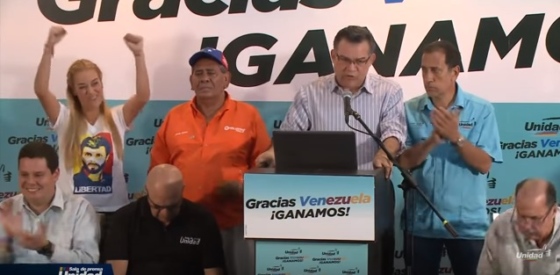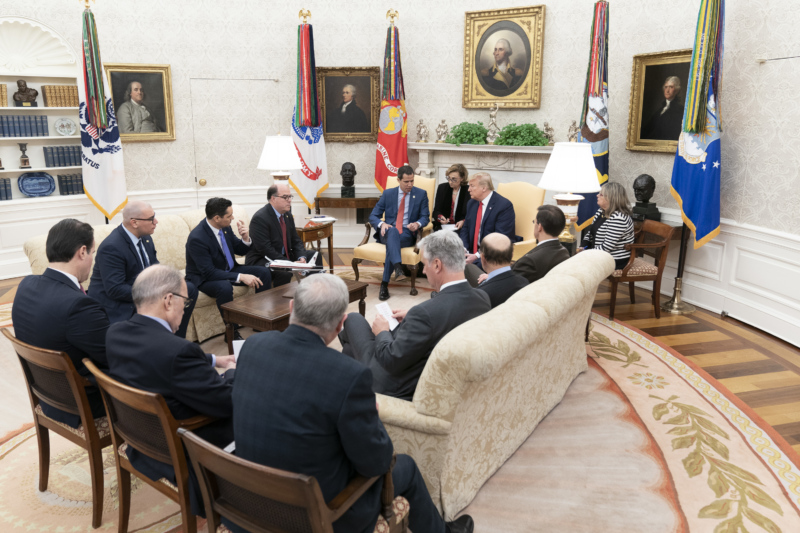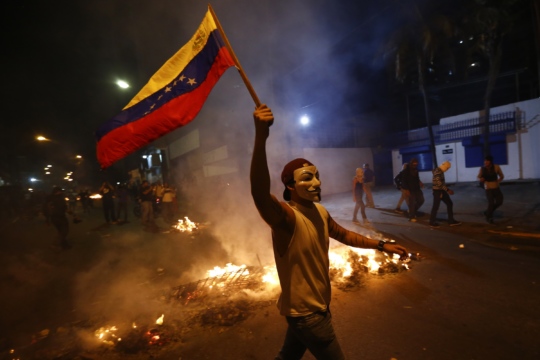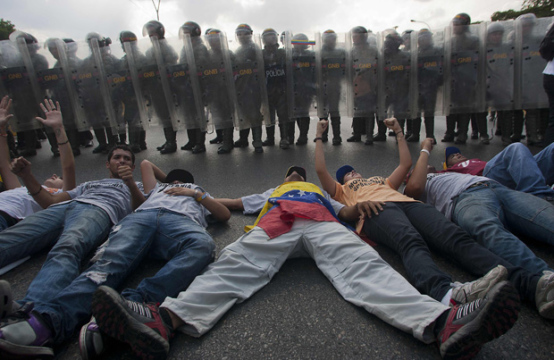
What Does the Future Hold for Venezuela?
What do the election results mean for President Nicolás Maduro and his grip on the presidency?
This post is also available in: Español
It did not take long for Juan Guaidó to backtrack after the furor he set off suggesting that Cuba might eventually be part of the solution to his country’s crisis. US government officials and some in the opposition came down quickly, and hard. Venezuela’s National Assembly president, recognized by nearly 60 governments as the country’s interim president, was reacting to Canadian Prime Minister Justin Trudeau’s offer to reach out to Cuba in an effort to end the Venezuelan tragedy. Trudeau had the best of intentions, but his idea sounded naïve.
Skepticism is justified. Cuba, after all, has been far from a benign actor. It has helped sustain the dictatorship of Nicolás Maduro, which is responsible for a humanitarian and refugee crisis of unprecedented dimensions. Though estimates about the extent of Cuba’s role vary, most agree that the Communist government provides ample security and counterintelligence support to Maduro.
Since Hugo Chavez came to power 21 years ago, the Castros have been unwavering allies of the Bolivarian Revolution. There are personal, ideological, geopolitical, and economic reasons for the bond. Cubans fear that a transition in Venezuela, which continues to supply the island some 40,000 barrels of oil a day, would be fatal for their already dire economy.
Yet, those who refuse to consider that Cuba might eventually not only be the problem but part of a solution have the burden to make the case what will resolve the crisis. There are two options. The first is the use of force, a military intervention of some kind, which would have to be the US alone (no regional government would go along) and which would be a disaster. It is not going to happen. The second is negotiation, a discussion of the terms and conditions of elections that would lead to a peaceful change in government. Many are skeptical of this approach as well.
And with good reason. In fact, over the past several years, representatives of the Maduro regime and the opposition met frequently but the talks were fruitless. Maduro was not prepared to negotiate in good faith. In 2019, Norway launched a more discreet and structured effort with representatives from both sides, which took place in Oslo and Barbados. Some progress was made on a number of issues, but the process fell apart in August.
Among the explanations why negotiations have so far failed is that they have only involved the opposition and the Maduro regime. But the reality is that Venezuela’s power struggle is playing out on a global geopolitical chessboard. Actors like the US, China, Russia, and Cuba are highly relevant. Perhaps they should have a seat at the table to pursue a meaningful and sustainable agreement. The Venezuelan military, a key pillar of support for Maduro, should also take part.
Such an initiative is very ambitious and complicated. It may be fanciful, but the fact is that nothing else has worked. Now is not the time to pursue this effort. Conditions are not yet ripe. It too would need to be discreet and would require sophisticated diplomacy. To be sure, to date there are no signs Cuba is willing to participate in such a process. But the dynamics of the situation are constantly evolving. It may be easier for Cuba than Venezuela to communicate privately with governments backing the opposition.
It is a safe bet that the Trump administration would reject such an idea. Unfortunately, its hardline, punishing policies toward Cuba, reversing the opening under Barack Obama, have been counterproductive, making it even harder for Cuba to reconsider its role in Venezuela. Mistrust between Washington and Havana has only deepened. A US embargo on Cuba hasn’t worked for the past 6 decades. It’s not clear why the same approach, largely driven by US politics and the Cuban-American diaspora in South Florida, would change the regime’s behavior today.
In his international tour, Guaidó urged governments to increase external pressure on the Maduro dictatorship, through diplomatic isolation and more robust sanctions. The US imposed oil sanctions a year ago, but that policy has yielded few results, apart from making the humanitarian situation even more acute. The regime has shown a capacity to adapt — and to survive. While some believe ratcheting up outside pressure, coupled with heightened mobilization in Venezuela, will result in the regime’s downfall, others see sanctions as a tool that could strengthen the opposition’s hand in any eventual negotiations.
A year ago, the emergence of Guaidó brought some hope to Venezuela. He was able to unite a fractious opposition and bring millions of Venezuelans to the streets. His courage and leadership are admirable. He, and many others, then believed that international and national pressure would make the military turn from Maduro to Guaidó, resulting in the regime’s fall. They were mistaken. They were guilty of a lack of realism. Today is a time for realism. It is also a time to be creative, open to new possibilities that have a chance, however remote, of ending the nightmare in our hemisphere.
What do the election results mean for President Nicolás Maduro and his grip on the presidency?
An economic and humanitarian crisis, precipitated by the Maduro regime, has brought Venezuela to the brink of collapse.
En una entrevista con BBC Mundo poco después de que Trump dijera este viernes que su gobierno maneja varias opciones respecto a la crisis en Venezuela, “incluida la opción militar si es necesaria”, Shifter sostuvo que esto podría servir como “un regalo” para Maduro.
 White House
White House

